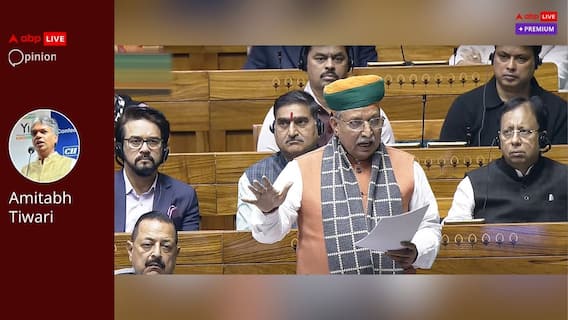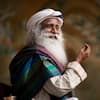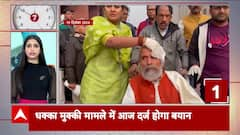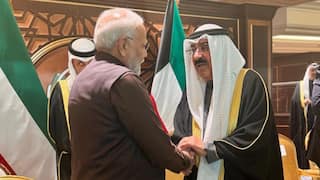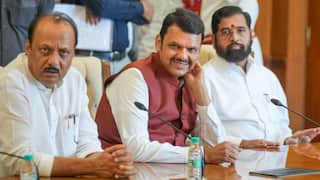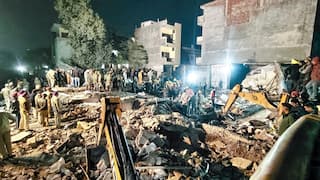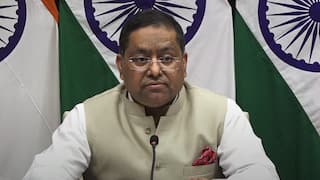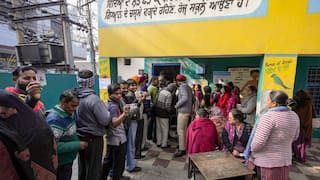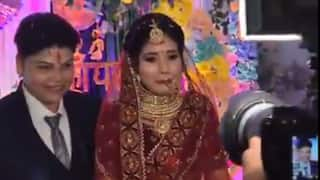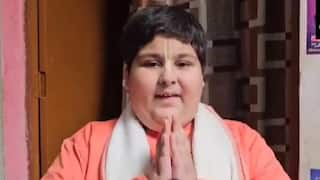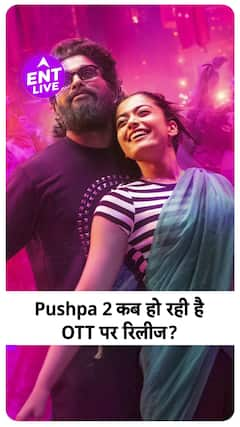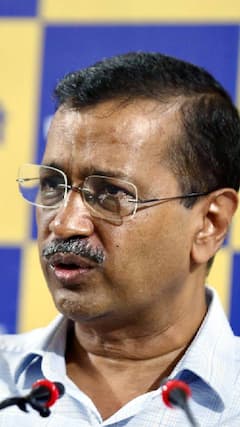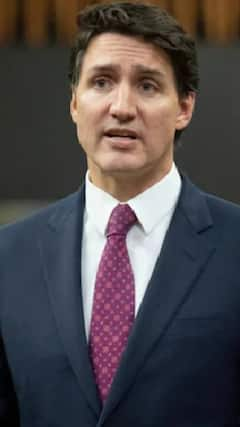Explorer
Advertisement
Indira Gandhi, The 'Son' The Family Never Had And The Daughter Who Broke The Caste Orthodoxy
When Indira was born, Hutheesingh remembered the Scottish doctor who was attending to Kamla Nehru announced to Jawaharlal Nehru: “It is a bonny lassie, Sir!”

Pandit Jawaharlal Nehru poses with his daughter Indira Gandhi, 25 February 1961 in New Dehli. FILE PIC/AFP.
On November 19, 1917, Anand Bhawan, Allahabad was brightly illuminated in anticipation of the new arrival. Indira Gandhi's aunt Krishna Nehru Hutheesing was ten then. She later recorded in her book on Indira Gandhi, “Dear to Behold – An Intimate Portrait of Indira Gandhi” [Macmillan] that several doctors and nurses were attending to Kamala Nehru. “My brother [Jawaharlal Nehru]’s gaze would be fixed on the door behind which his wife was lying in pain, having their child” Hutheesing wrote describing graphically the scene inside Anand Bhawan. ‘Servants were rushing around to serve soft drinks to women, scotch-and- soda to the men.” Motilal Nehru later celebrated Indira’s arrival with champagne.
When Indira was born, Hutheesingh remembered the Scottish doctor who was attending to Kamla Nehru announced to Jawaharlal Nehru: “It is a bonny lassie, Sir!”
According to her, Indira’s grandmother Swaroop Rani was expecting a male child. “My mother blurted out, “Oh, but it should have been a boy.” Womenfolk around her , pulled long faces in sympathy. This irritated Motilal, prompting him to chide his wife publicly, “You must not say such a thing. Have we made a distinction between our son and two daughters in their upbringing? Do you not love them equally? This daughter of Jawahar’s, for all you know, may prove to be better than a thousand sons.”
As per the Nehrus’ custom, after a few days, the young baby was taken to the major-domo of the house, the ailing Mubarak Ali. Wrapped in an exquisite Kashmiri shawl, Indira was carried to Mubarak Ali’s cottage. When the pink and white baby was placed in Munshiji’s outstretched hands, tears of joy rolled down the old man’s cheeks, wetting his long white beard.
He looked up to Motilal, Jawaharlal, Kamla, Swaroop Rani and the rest and said: “Mubarak ho, Bhai and Bhabhi Saheb! May Allah’s blessings go with the child, who should be a worthy heir to Jawahar as Jawahar has proved a worthy and wonderful son to you, and may the child illuminate the name of Nehru.”
Hutheesing remembers Mubarak Ali repeatedly being told that the baby was a girl but he kept addressing her as the ‘grandson’ of Motilal Nehru. Young Indira addressed aunt Krishna Nehru Hutheesing as 'Chitti' which in Tamil meant aunt while the Hindi equivalent was phuphi.
In one of the visits to the Jail, Indira informed her father about her desire to marry Feroze Gandhi. Jawaharlal was upset not because Feroze belonged to another religion [Parsi] and caste but he felt that Feroze’s background and upbringing were too different from Nehrus. He suggested Indira to think over and meet more boys. But Indira remained adamant.
Jawaharlal had to issue a public statement as news of Indira-Feroze’s interfaith marriage caused a lot of disquiet and both Hindu and Parsi Orthodoxy shot angry letters to Nehru. Nehru’s response was “A marriage is a personal and domestic matter, affecting chiefly the two parties concerned and partly their families. ….I have long held the view that though parents should advise in the matter, the choice and ultimate decision must be with the two parties concerned. That decision, if arrived at after mature deliberation, must be given effect to, and it is no business of the parents or others to come in the way. When Indira and Ferorze wanted to marry each other, I accepted their decision willingly and told them that it had my blessings.”
Hutheesing has given a vivid account of Indira’s marriage that took place at Anand Bhawan on March 26, 1942, “Indira wore a pale pink sari embroidered with tiny silver flowers. The sari had been woven from yarn spun by her father during one of his prison terms [Nehru had spent 3259 days in jails, nearly nine years]. Instead of jewellery, Indira wore ornaments made of flowers, which is the Kashmiri custom. She looked calm as usual, but the glow on her face disclosed her inner excitement. Always lovely to look at, she looked lovelier than ever – frail and ethereal.”
Indira’s wedding was performed as per the Hindu Vedic customs. Feroze was dressed in a khadi sherwani. The bride and groom sat side by side in front of the sacred fire. Next to the bride sat Nehru and beside him was a vacant seat, with a brocade cushion on it, a symbol of the bride's mother, who was no more, reminding everyone that there is no happiness without a touch of sorrow. When Nehru placed Indira’s hand in Feroze’s, they got up to take seven rounds of fire, repeating marriage vows after the priest.
Indira and Feorze went for honeymoon to Kashmir. Thinking of her father in the sweltering heat of Allahabad, Indira sent her a telegram, “Wish we could send you some cool breezes from here.” Nehru promptly replied, “thanks. But you have no mangoes.” By September 1942, both Indira and Feroze were in jail.
[Author-Journalist Rasheed Kidwai is a visiting Fellow of the Observer Research Foundation. He tracks government and politics and considered a specialist on Congress party affairs.]
Disclaimer: The opinions, beliefs and views expressed by the various authors and forum participants on this website are personal and do not reflect the opinions, beliefs and views of ABP News Network Pvt Ltd.
Follow Blog News on ABP Live for more latest stories and trending topics. Watch breaking news and top headlines online on ABP News LIVE TV
View More
Advertisement
Advertisement
Advertisement
Advertisement
Trending News


Sagarneel SinhaSagarneel Sinha
Opinion



